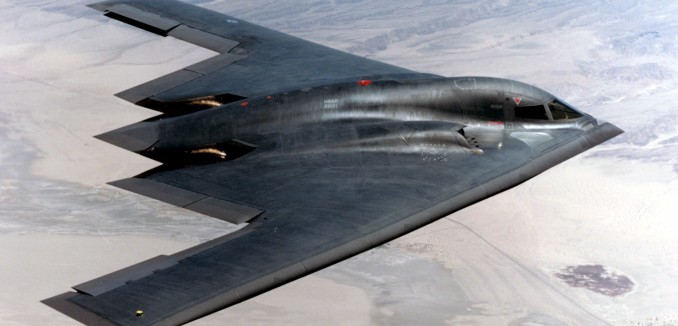In Congressional testimony two weeks ago, retired Lieutenant General Michael T. Flynn stated that the United States is “at war with violent and extreme Islamists (both Sunni and Shia) and we must accept and face this.” It is time to make a choice—push, before we are pushed.
But the United States cannot win this fight alone. It takes a network to fight a network, and to confront the deadly threat of Shi’a militas and subversive Iranian paramilitaries requires a new approach. What is needed is a network operating at the speed of the enemy—Iran’s military and intelligence services, not its people.
For decades now, Congress has done little to arrest Iran’s alarming expansionism. Continued disengagement and restraint has emboldened a savage adversary and, in turn, destabilized an entire region. It is time to go on the offensive. Incorporating all elements of national power—economic sanctions, law enforcement activities, kinetic military operations, cyberattacks, and covert action—will be critical to demonstrating resolve in the face of a ruthless and unpredictable adversary.
Iran’s proxies, like the Houthis and Hezbollah, leverage every advantage at their disposal. The tactics that support a strategy to defeat them should be equally imaginative. Any legislation considered by Congress should be informed by the persistence of an adversary that operates without boundaries or constraints.
Radical Islam is not on the run, and years of American disengagement have emboldened our adversaries. It is imperative that if the deal fails, Congress should craft an elastic authorization to use military force that doesn’t limit the President. Congress should not tie the hands of military and intelligence professionals with geographic limitations or time restrictions, and must take special care to allow for the inevitability prisoners of war will be captured on the battlefield.
Working in tandem, moderate groups vetted by our partners in the region and coalition special operations forces and intelligence services would keep relentless pressure on a brazen enemy—Iran’s elite Qods Force, the overseas arm of the Islamic Revolutionary Guard Corps. Some of these moderates can be found in the rugged corners of Kurdistan, while others are moderate Sunnis arrayed across the region who fear an ascendant Iran. Saudi Arabia, Israel, and Egypt would all be part of this effort, if the time came to remove Iran’s nuclear program with military force.
Besides being completely illegal, working in tandem with Iran’s paramilitary arm is strategically unsound. IRGC-QF, as the Qods Force is known in military and intelligence circles, is responsible for pumping explosives and snipers into both Iraq and Lebanon to target the American military and American diplomats. It was Iran’s intelligence services, not ISIS, that attempted to assassinate a Saudi ambassador and dozens of American opinion-formers in a tony Georgetown cafe this decade.
It was the Iranian regime who stoked the embers of bloody sectarianism in Iraq. Iran, moreover, is far from being the lesser of two evils. The Qods Force commits unspeakable atrocities, is complicit in the murder of women and children, and has backed sectarian death squads throughout Syria, Lebanon, Iraq, and even Afghanistan. Iran remains a state sponsor of terror, and is no ally of the United States or any rational actor committed to democratic ideals.
While internationalists have long championed airstrikes on Iranian nuclear facilities, progressives and realists across the spectrum warn of a magical force field of sorts. This is nonsensical. The United States Armed Forces possesses an Air Force and a Cyber Command, and can make quick work of hardened air defenses and bunkers.
Should military operations commence against Iranian forces, total commitment will be required. The true believers of the Iranian Qods Force and conventional line units will fight to the last man, and they will fight dirty.
Will America make a deal with a totalitarian regime, dedicated to our destruction? The familiar Obama administration rejoinder—what would you have us do, go to war with Iran?—was already tired, and remains so today. The only way to reach a credible deal with Iran is the credible and sustained threat of military force. The time to demonstrate American leadership—and prevent a regional arms race—is now.
The Middle East is plagued by long-term problems, a great many of them spurred by Iran and her handmaidens in Hezbollah and other Shiite extremist groups. The U.S. is uniquely positioned to lead an international coalition that removes Iranian paramilitaries from the battlefield and destroys its nuclear capability, through military, economic, and covert means. America can do this. Absent a deal, it must.
[Photo: Louis Waweru / Wikimedia ]
Robert Caruso is a veteran of the United States Navy and served in the Office of the Secretary of Defense, in the Bureau of Diplomatic Security at the Department of State, and in a Joint Task Force. Note: The opinions expressed in this piece are solely those of the author and do not necessarily represent the opinion of The Tower.




